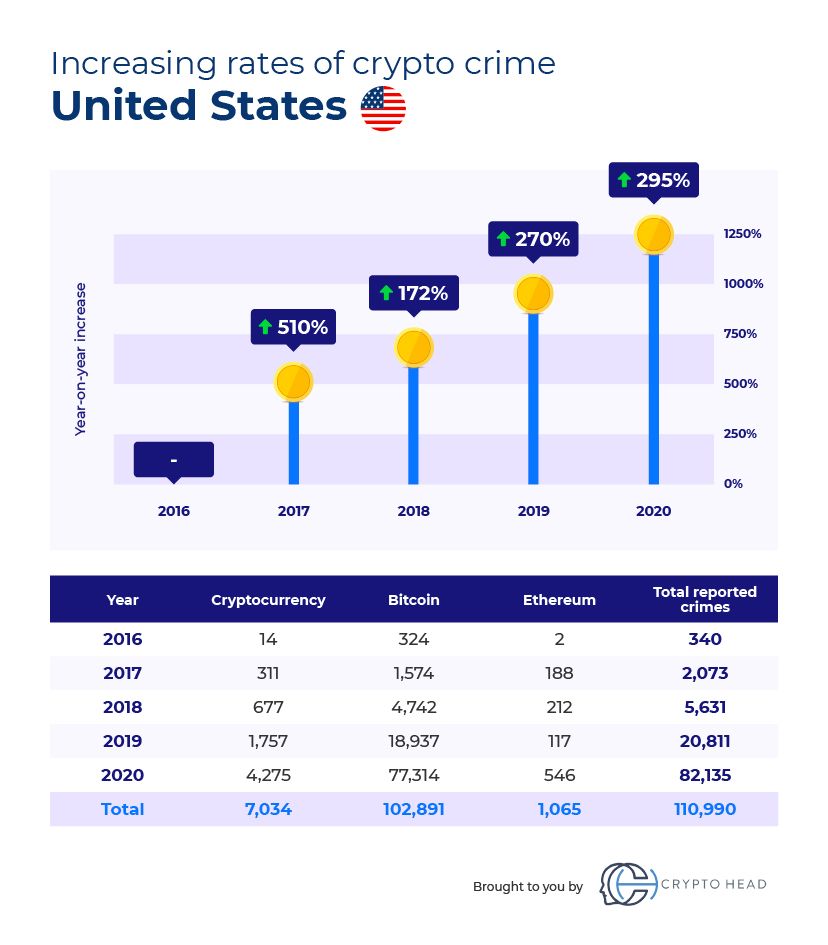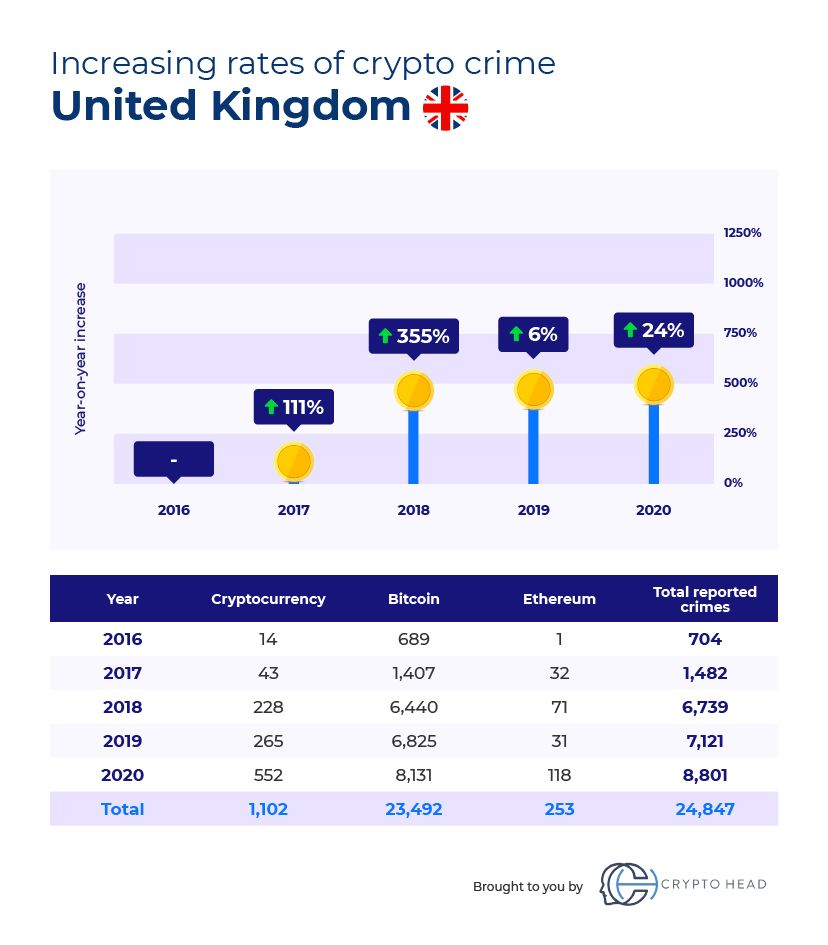Crypto crime is sharply increasing as more people are trying their hand at trading and investing, but falling victim to scams and fraud promising high returns. In the USA alone there have been 110,990 reports of crypto crimes since 2016, growing on average 312% every year.
New research from Crypto Head has analysed crime statistics of cryptocurrency-related reports to discover how rapidly this problem is increasing across the USA, UK and Australia.

Crypto crime has grown exponentially since 2016, which saw just 340 cases reported to the Federal Trade Commission compared to 82,135 in 2020. This is a 24,057% increase in just four years.
In total there have been 110,990 cases of crypto crime reported in the USA which have been growing every year.
On average each year the number of cases reported grows by 312%.
Bitcoin has the most crime reports of any currency totalling 102,891 reports since 2016, however, this can be expected as it is also the most dominant in the market.
The USA has more crimes than the UK and Australia which total 24,847 and 23,576 reported cases respectively.


There are various ways people can be duped out of their investment and coins. The most common of those include:
- Crypto Scam Initial Coin Offering (ICO):
Scammers will often lure investors with an ICO for a completely fabricated cryptocurrency, often taking information from legitimate coin sites to appear more convincing. As new currencies enter the market frequently, this can seem like an attractive investment to ‘get in quick’, only to find it was all fake. This was seen in cases such as Bitconnect and Pincoin where $2.6 billion and $660 million was stolen from investors. - Crypto Pump and Dump Schemes:
A small group of investors will pump money into a low value coin and convince private investors to follow suit so the initial group can sell their shares for a profit. The price then drops back down to its true value and leaves other investors out of pocket. - Crypto Theft:
Although crypto wallets can be very protected, they are not completely secure. Hackers can get in to directly steal your funds and they can also set up phony crypto exchanges. The most secure wallet is an offline one with a unique password that you change regularly.
Adam Morris, co-founder of Crypto Head comments:
“People should always beware of platforms offering huge returns, if it sounds too good to be true it most likely is. Never send your money or cryptocurrency to a platform you don’t completely trust. If you do some quick research you should be able to gauge online how reputable a company is.
“Even if you see big names like Elon Musk supposedly endorsing the investment, do not take this at face value. Scammers are so successful because they use recognisable and trusted names to dupe people into believing it’s a sound investment when really these people have no association to it at all.
“Make sure you are using an exchange you trust and that doesn’t have insane fees. Also, make sure that you store your cryptocurrencies in an offline-wallet such as a hardware wallet. “Not your keys, not your crypto”
– if you don’t have custody of your cryptocurrency in your own wallet you are at risk.”




